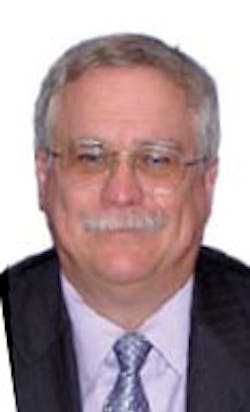These are “lean” times, to be sure, for our nation and our industry. Last month I warned against apathy about critical matters affecting the nation, generally, and the precision custom manufacturing industry, particularly. The degree of apathy about serious matters seems to be more critical than ever.
During lean times we instinctively cut expenses, and one of those expenses that always gets cut is training. When the lean time passes, our industry suffers because we don’t have enough skilled workers to perform challenging jobs.
I’ve heard machine shop owners complain that they don’t have enough people to get the work out the door, much less to handle new work that may be coming. When I ask them what they’ve done to help the situation, they usually respond they don’t have time or money to have done anything. We can’t complain if we haven’t tried to solve the problem. Working as a team, we can address this problem.
As business starts to pick up again — and it will — will we be able to handle the work coming in? We’re hearing stories about work that had been moved offshore now returning, and we know a large number of companies have not survived the current downturn. There are many reasons that offshore business might return, such as the fluctuating dollar, quality issues, OEM customers recognizing how much extra the actual offshore-supply costs are, and many others. With fewer companies and more work, we’ve lost capacity to do the same amount of work we had been doing before. We can’t afford to give customers another reason to source offshore. We have to get workers trained and in the pipeline in order to have available the skills needed to compete in a global market.
There are many good training programs, and many programs to tell people about our industry. The National Tooling & Machining Assn. has begun a program to develop best practices for recruiting, training, placing, and retaining skilled workers. The Precision Jobs for American Manufacturing (PJAM) project was begun in 2007 to bring all these programs together. PJAM now has nine beta sites developing best practices for specific regions.
Training is a local issue. No training program is going to be ideal for every location. We have to develop best practices for these four areas, and apply them to the specific type of training wanted or needed in a given geographic area.
The NTMA and several other organizations, including the Precision Metalforming Assn. and Precision Machined Products Assn., have helped fund and guide the National Institute of Metalworking Skills for many years. NIMS has come in to its own, and recognizing this the U.S. Dept. of Labor has started to integrate the NIMS guidelines in to its own apprentice guidelines. In addition, NIMS has developed a program for training trainers. The program guidelines will be instrumental in the success of the PJAM project at all levels.
As for marketing, NTMA has launched the new National Robotics League (NRL), which is the next generation of the Bots IQ program begun several years ago. The NRL was officially launched in June during the Skills USA contest in Kansas City. The purpose of the program is to bring many different types of robotics programs together, in order to network with each other. The programs’ primary goal is to bring awareness to young people about the careers available to them in manufacturing. To date at least eight NTMA chapters have robotics programs, and they’re growing every year. These programs instill energy in young people and team them with manufacturers and schools in their areas. It’s an exciting competition to watch, but its even more rewarding to see how young people are learning teamwork and problem-solving while learning about our industry.
We’re also working on different types of funding for these programs. Training a journeyman machinist isn’t cheap, but it offers a good return on investment. Well-trained workers earn more revenue for their employers, and themselves. In turn, this supports local economies with payroll taxes and sales and other consumption taxes. Many funding issues are being addressed. Some programs may find federal funding, and others may be funded by foundations. The recent federal “stimulus” package includes even more workforce-development funds, for skills training, and we have been approached by Congressmen with offers of assistance to fund more programs like these.
Our industry must use the world’s best available technology in order to succeed, now and in the future. But, we must have the world’s best-trained workers to use that technology, and to be more efficient and productive. We’ll succeed if we work together and support training efforts. Get involved in one of these programs, support them or find out how to start one in your area.
For more information about any of these programs, contact the NTMA at (800) 248 6862 or [email protected]
